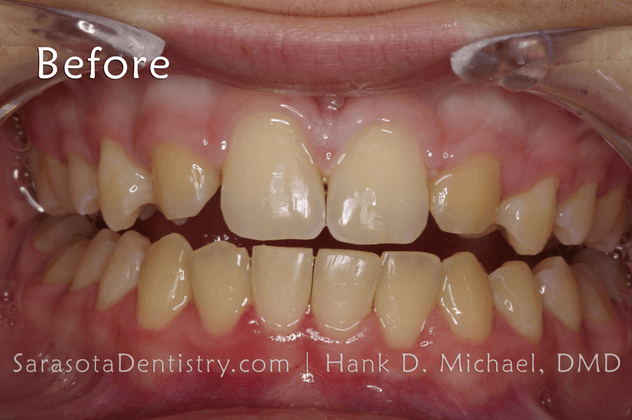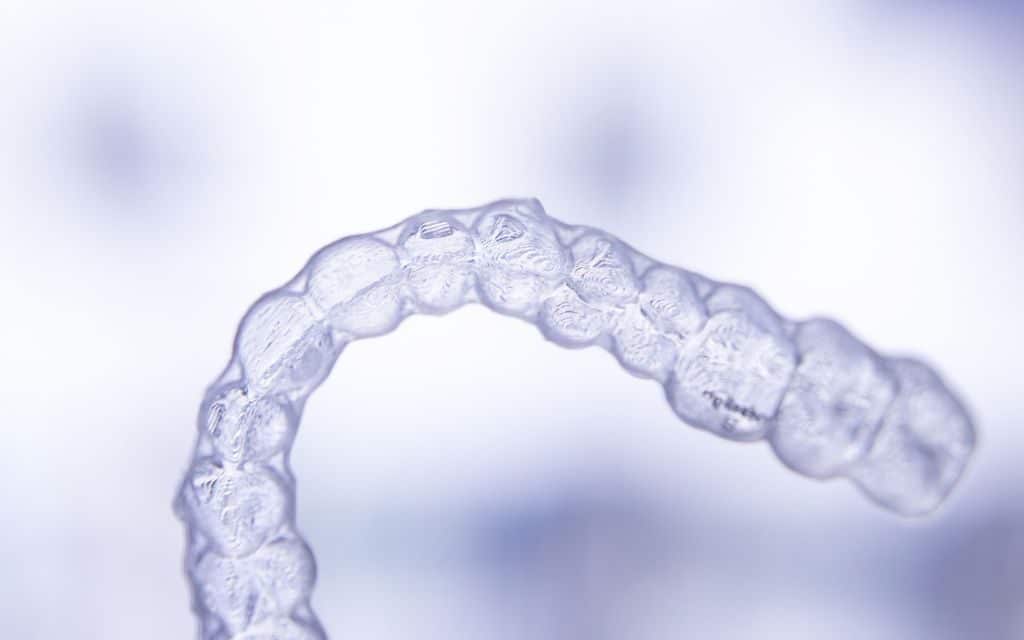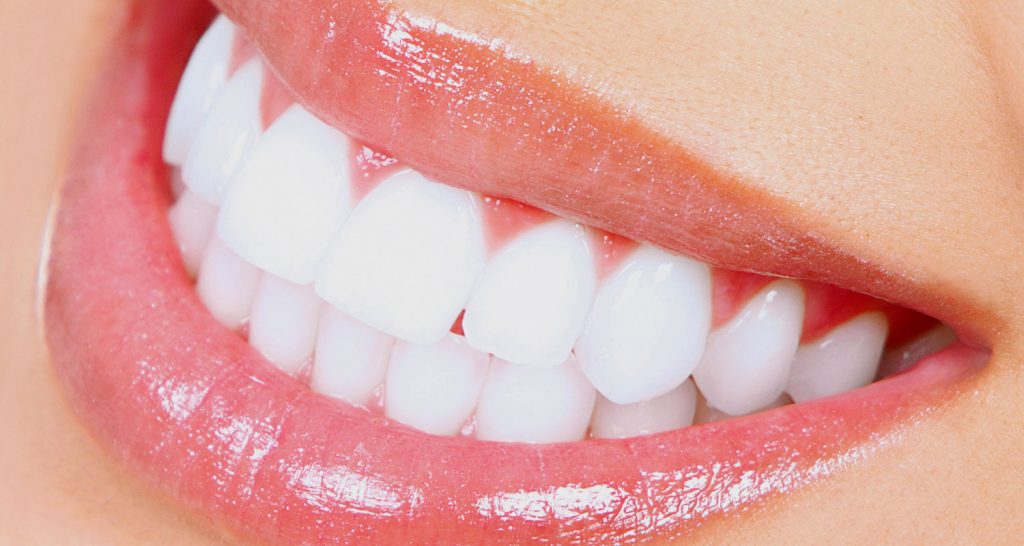Tooth wear tends to become more prevalent with age. Worn-down teeth can lead to various cosmetic and oral health problems such as yellowed teeth, tooth sensitivity, gaps between teeth, and jaw aches. However, many treatment options are available for tooth wear that can improve your smile and reduce any pain or discomfort associated with worn-down teeth.
Results from a 2009 study published in the International Journal of Prosthodontics found that the percentage of adults with severe tooth wear increases from 3% at the age of 20 to 17% at the age of 70. However, many other factors can contribute to tooth wear earlier in life, such as teeth grinding, physical abrasion, and acidic foods and beverages.
Table of Contents
- What Causes Your Teeth to Wear Down
- What Problems Are Caused by Worn-Down Teeth?
- How Do I Stop my Teeth from Wearing Down
- What are Treatment Options for Worn Down Teeth?
Here is a closer look at how to fix worn-down teeth, common causes, and prevention and treatment options that may be available from your dentist.
What Causes Your Teeth to Wear Down?
Worn-down teeth can be caused by one or several factors. Your dentist will ask you a series of questions during your appointment in an effort to identify the root cause of your worn-down teeth. This will help both you and your dentist develop prevention strategies and determine the best treatment solution.
The following are common causes of worn-down teeth.
Bruxism
Bruxism is the medical term for clenching or grinding teeth. It can happen anytime during the day or at night, though bruxism during sleep is often more difficult to manage and control. According to results from a 2016 study published in Sleep, bruxism during sleep affects an estimated 8.6% of the general population.

Bruxism can be caused by a wide range of factors, including stress, anxiety, diet, posture, and misaligned teeth. Common symptoms of bruxism are headache, pain or soreness in the jaw, insomnia, eating disorders, earache, and depression. When left untreated, bruxism can cause tooth damage and temporomandibular joint and muscle disorders, which are disorders that affect the chewing muscles and joints that connect the lower jaw to the skull.
What type of damage occurs as a result of teeth grinding? Teeth that grind together can cause friction, which gradually rubs away the enamel. Additionally, clenching the jaw can cause tiny cracks in tooth enamel. Over time, as tooth enamel wears away, teeth can become more sensitive to hot and cold foods and beverages, and more susceptible to rot and decay. As the back teeth wear down, the front teeth hit harder leading to excessive wear, loosening teeth and spaces or gaps between the front teeth.
Abrasion
Using your teeth as a tool to open packaging, or frequently chewing on hard nonfood items such as fingernails, pens, and pencils, can also wear down teeth. These behaviors cause physical abrasion that can wear down enamel, similar to how sandpaper wears down wood.
Physical abrasion can also occur when you brush your teeth roughly using a toothbrush with hard or stiff bristles. Many dentists recommend using toothbrushes with softer bristles to reduce physical abrasion and prevent the erosion of tooth enamel.
Exposure to Acids

Acids from vomit, foods, and beverages can weaken tooth enamel that wears away easily when brushing teeth, chewing hard foods, or grinding teeth. Sodas, sugary drinks, coffee, tomatoes, and citrus fruits are often highly acidic. Health conditions associated with frequent vomiting such as anorexia, bulimia, and substance use disorders can also expose teeth to high amounts of acid.
Certain Teeth-Whitening Treatments
Studies have demonstrated that aggressive teeth-whitening treatments can wear away enamel and contribute to worn-down teeth. However, teeth whitening can be effective and safe for teeth when performed by an experienced dentist. If you are interested in brightening your teeth, ask your dentist about in-office whitening treatments that will not erode enamel.
What Problems Are Caused by Worn-Down Teeth?
Worn-down teeth can cause aesthetic problems and serious oral health issues that require professional dental treatment.
The following are problems commonly associated with worn-down teeth.
Yellowed Teeth

Tooth enamel is white; however, the layer of your teeth below enamel—known as dentin—is yellow. Your teeth may gradually become more yellow as the enamel on top of dentin wears away due to bruxism, abrasion, or a diet high in acidic foods.
See-Through Teeth
“Why are my teeth see-through?” is a common question many patients ask their dentists. Factors that contribute to see-through teeth are aggressive bleaching and whitening treatments, acid erosion, and celiac disease—the latter of which is associated with poor development of tooth enamel.
Tooth Sensitivity
When the enamel on your teeth is worn away, the nerve endings in dentin are exposed to every substance you put in your mouth. Worn-down teeth can make you extremely sensitive to certain foods and drinks, and may even cause pain when brushing your teeth.
Headaches and Jaw Aches
Teeth that become worn down can lead to alignment problems with your bite and jaw to cause strain, headaches, and jaw aches. You may also tend to bite harder or chew differently to compensate for problems with tooth alignment.
Gaps, Spaces and Loose Teeth
When the back teeth wear down and become shorter, the consequences to the front teeth can be devastating. It is termed, secondary occlusal trauma and it can lead to loosening of the front teeth, bone loss, gaps between the teeth and even tooth loss.
How Do I Stop My Teeth from Wearing Down?

The key to preventing your teeth from wearing down is to identify the root cause behind why they are being worn down in the first place and to manage it appropriately. For instance, if your teeth are worn down due to consuming high amounts of acidic foods and beverages, you can make changes to your diet to reduce your intake of these foods.
If you suffer from bruxism and have been grinding your teeth, solutions include wearing a mouth guard at night while you sleep, avoiding alcohol and caffeine, and practicing stress management. If you have bruxism, your dentist can give you additional tips on how to stop grinding your teeth.
What Are Treatment Options for Worn-Down Teeth?
There are several treatment approaches for worn-down teeth, including dental veneers and crowns. Certain dental products can help strengthen and repair your enamel to reduce discomfort, pain, and future dental problems. Tooth enamel cannot be naturally regenerated; however, enamel can be remineralized with specialized toothpaste and treatments but only if enamel still exists.
How can you tell whether your enamel is gone? Yellowed teeth, tooth sensitivity, and changes in tooth shape are the most common signs of worn-down enamel and teeth.
Your dentist can perform a thorough examination of your mouth and recommend the best treatments for restoring and fixing worn-down teeth. If you have bruxism, your dentist can discuss your options for teeth grinding damage repair.
Below are common dental procedures for worn-down teeth.
Dental Bonding
Dental bonding is a procedure in which a tooth-colored composite material is applied to the surface of teeth to cover worn surfaces and improve the appearance of teeth. Bonding may also reduce tooth sensitivity and address problems with bite alignment. Your dentist may recommend dental bonding if you have minor to moderate enamel erosion in isolated spots.
Porcelain Veneers

Porcelain veneers are thin layers of porcelain that are bonded to the surface of teeth to improve their colors, shapes, and sizes cosmetically. Veneers can also strengthen the surface of teeth to reduce sensitivity and make them less susceptible to damage and discoloration.
Porcelain Crowns
If you have several teeth that are severely worn, your dentist may recommend covering those teeth with porcelain crowns. A porcelain crown can cover an entire tooth to prevent cracks in enamel from spreading and protect the tooth from additional damage.
If your teeth are showing signs of enamel damage, contact Sarasota Dentistry at (941) 929-7645 to make an appointment as soon as possible. Sarasota Dentistry offers general dentistry services, cosmetic dentistry services, and dental implants for those who want to restore their smiles and improve their oral health. Our staff will perform an evaluation and recommend the best treatments for you based on your dental needs.
Sources:
International Journal of Prosthodontics
Bruxism: MedlinePlus Medical Encyclopedia
American Dental Association: Erosive Tooth Wear
Tooth Whitening: What We Now Know
- Dental Implant Pros and Cons - August 26, 2023
- Receding Gums Stages - August 12, 2023
- When Is It Too Late for Gum Grafting? - July 8, 2023


